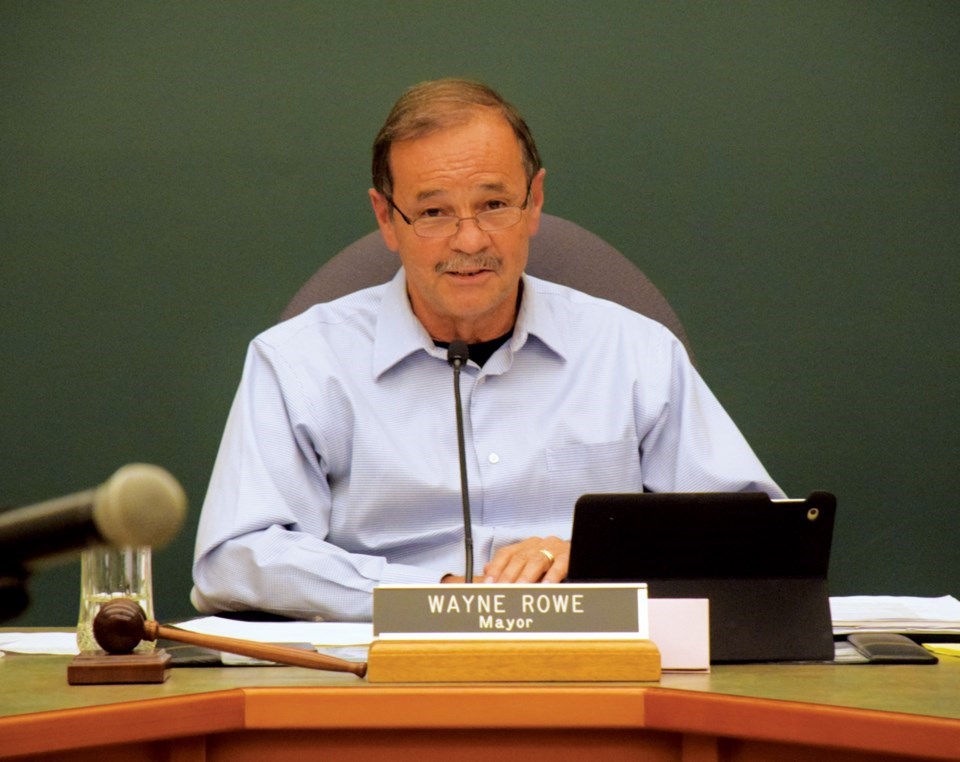A Gibsons lawyer has been fined $10,000 for “misconduct” by the Law Society of British Columbia for helping a family by dispersing funds from an estate to save them the time and expense of an administrative application for probate.
According to the society, lawyer James Wayne Rowe did not have the authority to distribute the estate and had not applied for a grant of administration or been appointed administrator at the time he dispersed the money.
Rowe, who served as mayor of Gibsons for two terms beginning in 2011, told Coast Reporter he was aware that the way he handled the disbursement was not exactly by the book.
“So, it was one of those situations where I was dealing with a family with a fair degree of distress at the time and the end result was actually going to be the same no matter which route was taken,” says Rowe. “The difference would be that I could either assist them right then and there when they needed it or tell them they're going to have to go through a fairly long process before they can basically get to the same end.”
According to the society in January 2021, a man with no spouse or children died without a will and his property was the sole asset of his estate.
Rowe understood that the man’s remaining family, including his mother, father and two siblings were not willing and or able to apply for administration of the estate in order for a foreclosure to proceed. In 2022, he applied to have one of the siblings added as the estate’s litigation representative for the foreclosure proceedings.
The property was eventually sold and, after paying out any outstanding costs or debts, including arrears of taxes, water and sewer rates, interest and penalties, the real estate commission, and the amount required to pay the outstanding balance of its mortgage plus interest, the remaining balance of $84,080.97 was to go to the man’s mother and father, who were divorced.
Rowe recognized the father was 98 years old with diminished capacity and, because of the father’s situation, the siblings intended to apply for appointment as committees over their father in order to arrange the sale of his property and deal with his outstanding expenses. An appointment of committee has rights similar to someone with power of attorney, but is decided by the court if the person has diminished capacity.
Based on those facts, but contrary to the order, Rowe distributed the proceeds by issuing trust cheques to the man’s mother and siblings. Rowe also wrote a cover letter to the siblings, which read in part, “I confirm that the two of you are applying for appointment as committees of your father’s estate due to his current incapacity. […] find enclosed my trust cheque in the sum of $42,040.43 for your father’s portion of these remaining funds to be administered by you on his behalf.”
That decision enabled the siblings to proceed with the application for appointment as their father’s committees. According to the society, at no time did Rowe have the authority to distribute the estate, apply for a grant of administration or been appointed administrator of the estate.
The society added, the estate has not been challenged by any beneficiaries or potential beneficiaries and that Rowe’s actions, while motivated by a desire to assist the siblings in managing their father’s affairs, represent an error in judgment for which he assumes responsibility.
“The lawyer expressed his desire to resolve this matter at an early stage of the Law Society’s proceeding and has cooperated with the Law Society by making early and fulsome admissions,” the society said in its ruling. “In approving the consent agreement proposal, the Chair of the Discipline Committee also considered that the proposed fine was consistent with the outcome in prior, similar matters.”
Rowe admits it was an error in judgment on his part because he is not permitted to make his own choices in those circumstances. Rowe says it was a routine, scheduled audit, which brought the facts of the case to light
“But I thought it was the right thing to do for that family at the time,” says Rowe, who adds this is his first time being disciplined in the 44 years he’s been practicing law.



